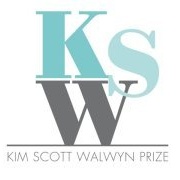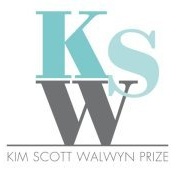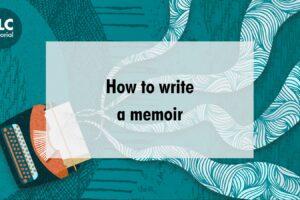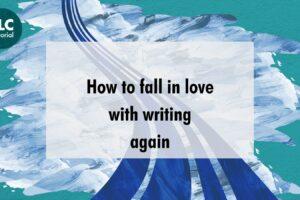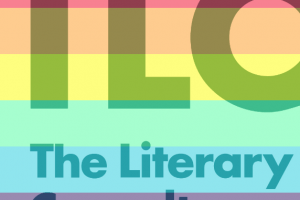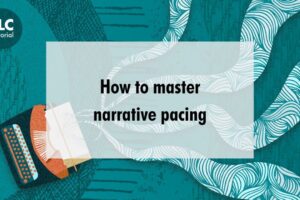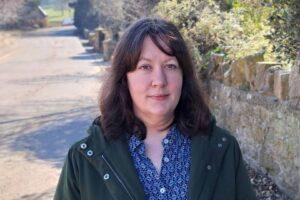On May 28th, the prizegiving ceremony for the Kim Scott Walwyn Prize was held at Stationers’ Hall, in celebration of the 2019 shortlist of women in publishing whose professional achievements have had significant impact in their first seven years in the industry. Founded in 2003, the Prize honours the life and career of Kim Scott Walwyn, who was Publishing Director at Oxford University Press and who died in 2002 at the age of 45. The 2019 winner, Aimée Felone, was presented with a £1,000 cash prize by keynote speaker Deborah Frances-White (The Guilty Feminist), and hailed by the committee of judges for her ‘outstanding contribution’ to the industry for her work with Knights of, the inclusive children’s publisher she co-founded which aims to redress the balance of cultural representation in children’s books. Also shortlisted were 404 ink publishers Heather McDaid and Laura Jones, Nosy Crow rights manager Ola Gotkowska, co-owner of OWN IT! Crystal Mahey-Morgan, and The Literary Consultancy Director Aki Schilz.
Here, Aki answers questions put to her by the KSW Prize, on work and women in publishing, her inspirations, proudest achievements, and thoughts on the future of UK publishing.

How does it feel to be shortlisted for the Kim Scott Walwyn Prize?
I found out about being shortlisted on the anniversary of the death of TLC’s founder and Director for 22 years (and a great champion of both women and literature), Rebecca Swift. Given that Becky was herself shortlisted in the first year the Prize ran, hearing the news really did feel like a gift from above. I am deeply touched to be shortlisted for this incredible prize which recognises the contribution of women to the literary ecology of the UK.
What does the Kim Scott Walwyn Prize mean to you, as a celebration of the achievements and promise of women working in publishing?
In her Guardian obituary, Kim Scott Walwyn’s style was described as ‘invigorating’. I love that word, and wish I’d known the woman herself. The Prize sets out to honour Kim’s energy and commitment, which seemed to go beyond the bounds of competency and awards the kind of change-making that takes a more holistic view. It seems in everything she did, Kim made sure she lifted others up, challenged the status quo where she felt it was right to, and acted in a spirit of warmth and generosity, whilst being utterly uncompromising in her integrity. If there’s any ‘leadership’ style that all of us can aspire to, it’s this, and I admire it, and the Prize, for their championing of this sort of approach. It feels open-hearted, and important, especially now.
Which woman in publishing do you admire most and why?
There are so many women in publishing who inspire me daily, it would be impossible to pick just one. The women we owe a debt to include early pioneers like Margaret Busby, Susheila Nasta, Carmen Callil and Ursula Owen, entrepreneurs and innovators, and champions of inclusivity in the publishing space. That good work has been continued by people like Ellah Allfrey, Bibi Bakare-Yusuf, Valerie Brandes, Sharmaine Lovegrove and Crystal Mahey-Morgan. And then there are those like Suzanne Collier who do so much to support those getting into, and working in, publishing today. Her salary survey is also vital – we need to talk more about salary transparency (hence my #bookjobtransparency campaign), and transparency of HR practices in publishing.
What are you passionate about in publishing?
WRITERS. And writing. All the rest is logistics. Which is where we design and curate and make and programme and make offers and services and Other Things (all valuable), but at its heart, it’s always about writers writing and finding ways to tell stories. All stories are valid. All stories are valuable. And all are essential to the survival of literature. Regardless of ‘outcome’ or ‘pathway’, artists must always be encouraged and supported to be creative, to test, to play, to fail, to do all they need to find their voices. Process not product. Process not product. Process not product.
What’s the favourite thing about your job?
At the moment, I’m enjoying the challenge of running a small literary organisation with huge ambitions. I love looking at how to develop a sustainable business model that generates enough to re-invest in the industry, in itself, and in its writers (we give back, and we build up so we can support more writers, support our staff, our freelancers etc). I’m getting much more of a sense of the relationship between cost, price, and value, and I feel that as an industry we could benefit from exploring this relationship in more detail. It impacts on our relationship with our audiences, and on our relationship between art and art-making, or more specifically, art and art-makers. A recent Arts Council report shows that Arts and Culture contributes £10.8bn to the UK economy. But who is benefiting, and how do we share the rewards more evenly? Rewards can be anything from fair pay for writers to models that facilitate access to the arts for those who wouldn’t normally find their way to the kinds of experiences many of us working in the industry take for granted, or assume are the only ways one might ‘consume’, say, literature. Art doesn’t need to compromise on imagination, vision or quality to be accessible, and great art must be accessible for all. Surely that’s why we’re all in this? Because we love literature, and know its power, and we should be sharing that.
What one thing would you change in publishing?
In a way TLC works alongside rather than in publishing ‘proper’, so it’s an odd vantage point, but a useful one, retaining a certain kind of agnosticism that makes our work much more agile and wide-ranging than if we were too beholden to so-called traditional publishing structures. I love the publishing world, but I want it to do and be better – and I think it can be. There are innovators, movers and shakers who as individuals driving initiatives or programmes excite me and give me hope for the future, but we need structural and cultural change to make real innovation possible, and I think that at its heart, publishing is an industry that works along deeply ingrained, traditional power lines that are difficult to challenge at a fundamental level. I just want books to hold out, without a sense that we’re clinging onto something for dear life that we can’t really explain to anyone looking in. We need to fling open the doors, not build shiny new guestlists that pretend openness but only concede access to those who ‘fit’ the agenda du jour.
What advice would you give to your younger self?
Perfectionism can be a vice as well as a virtue. Procrastination is often a symptom of anxiety. At some point you have to take the plunge, so trust that you know what you are doing, and be big enough to be humble when you don’t. Surround yourself with people who are cleverer than you, and who do things you don’t do. You will learn from them, and your life will be enriched. Ask more questions; of the world and of yourself. And don’t worry if you feel you don’t fit in. Make the world, don’t let it make you, and you will always have places (multiple) that feel like home.
What advice would you give to anyone thinking of applying for the Kim Scott Walwyn Prize?
Go for it. It’s enormously validating to remind yourself that your hard work is yours, as well as reminding yourself why you do it. It’s an important reminder of where you are, how far you’ve come, and if you’re the kind of person the KSW Prize is looking for, the process of articulating all of this can’t help but spark ideas about what’s next, what else or what more you can do to make an impact, move forwards, and make things better. And how exciting is that?
What are you most proud of in your career so far?
Taking over TLC has been an enormous challenge, and it’s taken me 2 years to feel I’m finally finding my feet in this strange industry, full of creative hope and stubborn resistance and everything in between that is exhilarating and frustrating and inspiring all at the same time. There are many milestones – securing a book deal for a client just hours before she passed away, supporting a prize for women philosophers, ‘graduating’ from a ‘leadership’ short course and feeling empowered to forge my own brand of leadership instead of struggling to fit others’ styles… But I feel sure my proudest moments are all ahead.
Where would you like to be in five years’ time?
The moment I make a prediction, I feel I’m writing myself out a fortune cookie that will decide my direction. I’d rather see where the tide takes me, but probably, I’ll be steering an invisible rudder the whole way, making choices, taking risks, and striving forwards. Hopefully, I’ll still be writing poetry, still fighting the good fight, and still flinging myself and the good ship TLC forwards with optimism. Because I refuse not to be optimistic.
How do you start and end your day?
My alarm goes off at 6.10am, by which time my cockapoo puppy Ozzy is usually awake. We walk 6.45-7.30, and I leave for work at 8. I do the usual email admin in the morning, then look at programme, strategy, any partnership management, new opportunities, and check where we are in the calendar (any reporting or evaluation due? are we roughly on target with budgets?) I’ll check in with my manager Joe, and our colleague Nelima, about our work with writers, what’s coming in, any issues arising, any feedback to shout about, and any ‘success stories’ to pop on the website. We’re immensely proud of the writers we work with. I try to leave work at 5.30 or 6pm. I had a period of working 7am-9pm and all weekends, and it made me very unwell. I’ve learned that I am most productive when fit, happy, and present. If I organise my time, I still get everything done. Trying to get rid of the guilt is a work in progress, and I still take work home with me. I read when I can, go to the gym, or go to literary events. Bedtime is 10pm, because my life is deeply unglamorous, but I don’t need to apologise to anyone for trying to get enough sleep.
What do you do to turn off from work?
I used to dance, which kept me fit. Now that my dancing days are over, and I’ve got some issues with my joints (yes, already), I’ve started working out with a personal trainer, which has been transformational (I also owe a debt to Juliet Mushens, herself a former KSW shortlistee, who has inspired my fitness journey!). I love working out now, it really helps focus my mind, and makes me feel strong and ready to tackle any challenge, from creative knots to strategic forward-planning (I’m never fully ‘off’, but it suits me that way). I read and write poetry, and I enjoy walking out on the marshes with my dog, and nights in with my partner. I’m a bit of a YouTube ditherer, and can get stuck on certain themes. At one time, I was obsessed with competitive eating videos, another, WWE romance storylines…
What would you be doing if you didn’t work with books?
Choreographer, innovation think tank person, some kind of high-flying MD… Or, I’d set up a business of my own. I’ve a few business plans I’m toying with, supporting women in the arts to be more entrepreneurial. I think we could all benefit from some business skills, not just those who want to ‘lead’ companies. Skills around being robust and protecting yourself are critical, for artistic practitioners as much as for CEOs.


